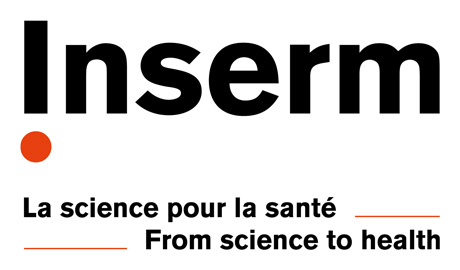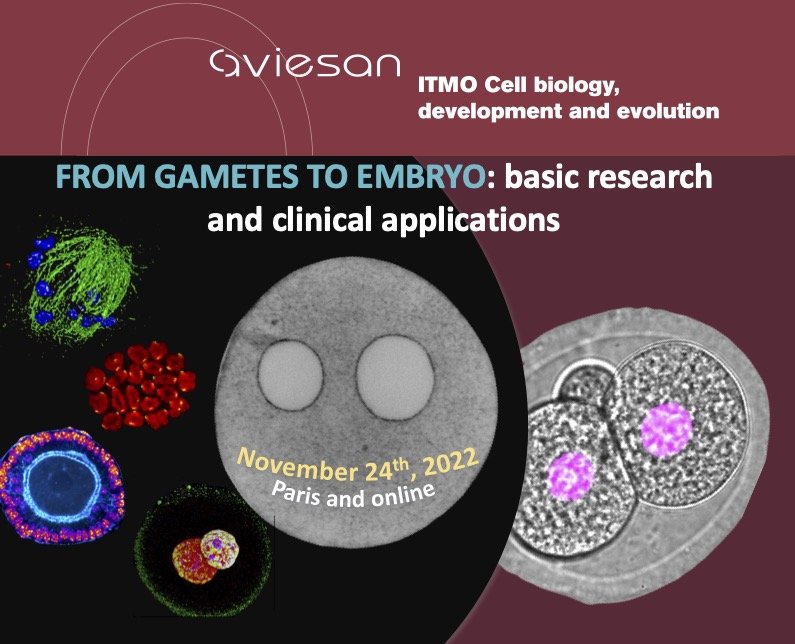






Maud Borensztein
![]() Institut de Génétique Moléculaire de Montpellier, France
Institut de Génétique Moléculaire de Montpellier, France
Our group investigates X-chromosome reactivation during the specification of the germline. This female-specific reprogramming pathway is a paradigm of epigenetic resetting and fine gene-regulation control. A better understanding of the mechanisms involved in gene expression regulation and epigenetic memory is crucial, especially in the very unique context of the germ line formation.
https://www.igmm.cnrs.fr/team/reprogrammation-epigenetique-et-developpement/
Deborah Bourc'his
![]() Epigenetics, RNA and genome dynamics, Institut Curie, Paris, France
Epigenetics, RNA and genome dynamics, Institut Curie, Paris, France
The interest of our team is focused on understanding the nature and the role of the epigenetic information within the peri-conception window, which encompasses gametogenesis, fertilization and early embryonic development.
Patricia Fauque
![]() Laboratoire de Biologie de la Reproduction-CECOS, CHU Dijon Bourgogne, and Université Bourgogne Franche-Comté - Equipe Génétique des Anomalies du Développement (GAD) INSERM UMR1231, Dijon, France
Laboratoire de Biologie de la Reproduction-CECOS, CHU Dijon Bourgogne, and Université Bourgogne Franche-Comté - Equipe Génétique des Anomalies du Développement (GAD) INSERM UMR1231, Dijon, France
Thomas Fréour
![]() Service de médecine et biologie de la reproduction, gynécologie médicale, CHU de Nantes; INSERM UMR1064, CR2TI, Nantes; University of Nantes
Service de médecine et biologie de la reproduction, gynécologie médicale, CHU de Nantes; INSERM UMR1064, CR2TI, Nantes; University of Nantes
Our research team works in the field of stem cell fate, developmental biology and fertility. More specifically, we explore cell fate during human preimplantation development. We also conduct several clinical studies in the field of human fertility.
Takashi Hiiragi
![]() Hubrecht Institute, Utrecht, The Netherlands
Hubrecht Institute, Utrecht, The Netherlands
Self-organization is a defining feature of living systems and entails complex interplay between molecular, cellular and mechanical signals across various spatio-temporal scales. Using early mammalian embryos as a model, the Hiiragi group adopts a variety of methods including genetics, microscopy, biophysics, engineering and modelling, to investigate how self-organised forms and patterns emerge from a spherical mass of cells.
https://www.hubrecht.eu/research-groups/hiiragi-group/
Kikuë Tachibana
 Max Planck Institute of Biochemistry, Martinsried, Germany
Max Planck Institute of Biochemistry, Martinsried, Germany
The department of Kikuë Tachibana is investigating the mechanisms of totipotency reprogramming, spatial chromatin reorganization and zygotic genome activation (ZGA) in mouse embryos. The group uses an interdisciplinary approach combining mechanistic cell biology with genetics, genomics, bioinformatics and biochemistry.
https://www.biochem.mpg.de/tachibana
Magdalena Zernicka-Goetz
![]() Mammalian Embryo and Stem Cell Groups. Cambridge, UK and Caltech, USA
Mammalian Embryo and Stem Cell Groups. Cambridge, UK and Caltech, USA
In our group we investigate molecular and cellular mechanisms underlying the specification of cell lineages and patterning. The mouse embryo is our major model system because this allows us to combine cell biological and molecular genetic approaches with live embryo imaging to study development in a system that is close to our own, human development.